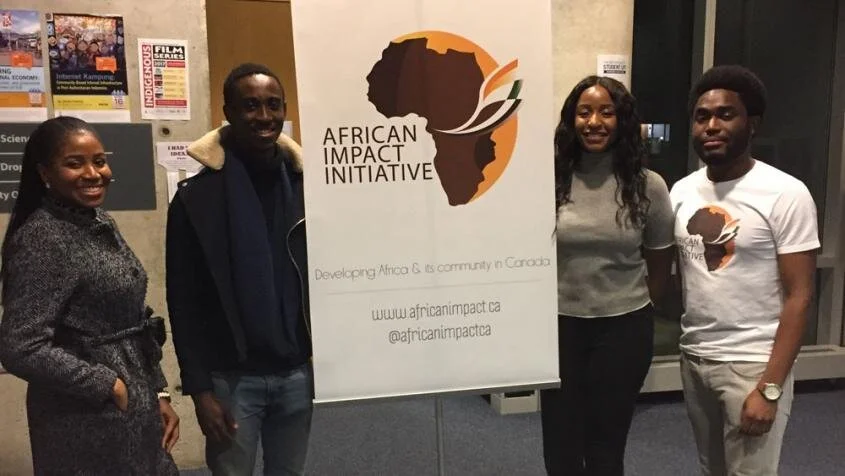From corporate techie to impact: how God is using a Nigerian to transform innovation in Africa
by Efosa Ojomo
“The steadfast love of the LORD never ceases; his mercies never come to an end; they are new every morning; great is your faithfulness.” – Lamentations 3:22-23
By the time Efosa Obano left Nigeria to study at the University of Toronto, he had already experienced the steadfast love of God multiple times. Although his parents weren’t wealthy, at 10 years old he left home for one of the best (and most expensive) boarding schools in Nigeria. His parents sacrificed a lot to pay his fees at the school. While in boarding school, he worked hard but also got in enough trouble with school administrators to eventually get suspended. Just before graduation, school officials reviewed his case and briefly considered expulsion. But, according to Obano, through a series of inexplicable events, he was ultimately allowed to graduate. Upon graduation, he got into University of Toronto in Canada where, again by his admission, the Lord helped him excel and win favor with many students and university officials. After graduating from college Obano got a job at Dell. But in his heart, there was a true desire to ignite the flames of innovation across Africa. Even at a young age, he believed the Lord had called him to impact the lives of millions of Africans through innovation.
Obano’s life, like most of ours, is imperfect, but a consistent theme runs through it: his obedience to the call of God. So, when he got the vision to set up African Impact Initiative, even though the vision wasn’t clear, he obeyed. Initially, with the help of some of his African classmates, he created a platform designed to positively impact the African community in Canada. The original idea was to develop capacity building and professional development programs for young Africans in Canada. Although, not directly related to his interest in innovation and entrepreneurship, Obano got the experience necessary for creating something from nothing. He also learned a critical lesson: “as a founder, no one on your team will be more passionate than you are about what you’re building; especially at the beginning. And this means you’ll have to work harder than everyone else in bringing it to life.”
Obano worked incredibly hard to keep good grades, build this new organization, and maintain existing relationships. In fact, he got so exhausted at one point that he “lost consciousness and almost died.” The stress of managing all that was on his plate while working hard to earn God’s love became incredibly overwhelming and so he simply let go. It was around this time, just before graduation, Obano gave it all to God. It was when God took over that Obano began to truly experience God’s steadfast love and faithfulness. That year turned out to be his best yet. He got his best grades, got a fulltime job at Dell, and won an award for African Impact Initiative. While things were going well for Obano, the mission of African Impact Initiative began to change. He wanted to focus on Africans in Africa.
It was around this time that Obano stumbled upon the book, The Prosperity Paradox: How Innovation Can Lift Nations Out of Prosperity. I was fortunate to co-author the book with Karen Dillon and the late Harvard Business School professor Clayton Christensen. In it, we write about the transformative power of market-creating innovations. Market-creating innovations transform complicated and expensive products into products that are simple and affordable, making them accessible to a whole new segment of people for whom there was always underlying demand, but no adequate solution on the market. This segment of the population is referred to as “nonconsumers.” In many growth economies, the population of nonconsumers for most products and services far surpasses that of consumers. As a result, when entrepreneurs develop market-creating innovations, the societal impact is immense.
For example, in the early 1900s few people in the United States could afford cars. It was an expensive toy for the wealthy until American entrepreneur Henry Ford developed the Model T, an affordable car for the average American. Once the car became affordable and accessible, not only did millions of Americans purchase it, but this market-creating innovation led to significant development. From more productive transportation and agriculture to significant infrastructure development, the Model T changed the landscape of the United States of America. Precisely, this kind of impact is what Obano hopes to have in Africa.
To that end, Obano and his team created the African Impact Challenge (AIC) with the goal of building a prosperous continent by investing in Africa’s aspiring entrepreneurs. AIC executes a comprehensive set of innovation activities for entrepreneurs, including capacity building, startup incubation, and go to market strategies to help them increase their odds of innovation success in Africa. The organization is focused on first-time founders and has operations in Ghana and Kenya, with plans to launch activities in Rwanda in 2022. For its first pilot, 92 founders applied and 11 were supported. This year, AIC had more than 500 founders from 226 companies engage in its preincubation programs. Although AIC is new, the organization has received several awards including one—2020’s top 50 youth solutions—from the United Nations.
AIC’s future is certainly bright. Through all the ups and downs of life, Obano has learned (and continues to learn) of God’s steadfast love. He sums it up best when he says, “In summary, God has been extremely kind to us, and He is directing our steps for what the purpose of our organization would be in doing His will.” In the next decade, I won’t be surprised if some of the most successful innovators in Africa are connected to the African Impact Challenge.

